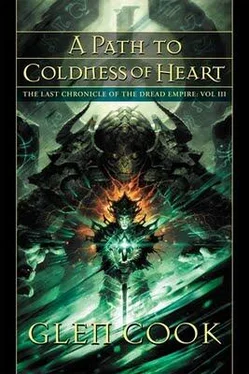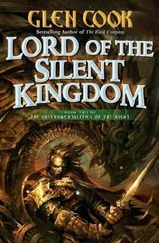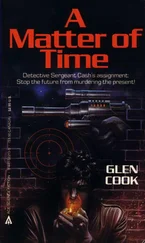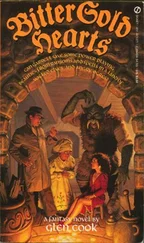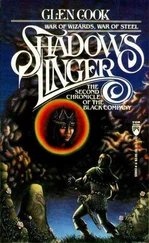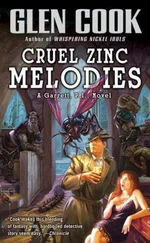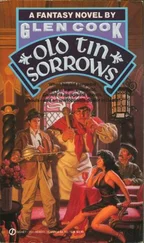“I hope so,” Dahl said. “I wasn’t made for this life.” Kristen snapped, “No one is. It’s a life that comes looking for you.” Sherilee said, “This is a nice place. It must have belonged to one of the high muckety mucks.” The structure, partial y log, partial y stone, was large and had potential for being made comfortable. There were stores in the camp, tools, and even weapons. Dahl said,
“Let’s don’t touch anything we don’t need to. We don’t want any smugglers upset because we got into their stuff.”
“Smugglers?”
“Smugglers. It’s what Aral does. Remember? This is a way station on the route into the desert. We’l see plenty of travelers once the weather gets better.”
“Then we’d better get the kids educated about what to do when strangers come.”
That proved to be no problem. The first travelers were not inclined to socialize, either. Some never showed their faces.
That was both a comfort and discouraging. No discourse meant no news from outside.
...
There had been innumerable dislocations in city life the past ten years. No Vorgreberger knew al his neighbors anymore. The situation suited spies and criminals and anyone else who wanted to go unnoticed.
Espionage was a thriving industry. Crime was less lucrative, other than for smugglers. Smuggling was just commerce where the Crown failed to extort any taxes.
Gang crime had fal en on hard times. Some invisible force saved the body politic the added friction.
Dark tales circulated in the underworld. They insisted that dire forces were at work. Things came in the night to col ect those who preyed on their fel ows.
It was true: evil men did disappear.
Crimes of passion remained common. What could be done to curb those?
There was an apothecary shop in Old Registry Lane. It had been there for decades. An elderly fel ow had run it til recently. He had been a permanent grouch. When his son took over people noted that the younger chemist was less cranky.
He was about fifty. He may have been a soldier once. He had a bad right knee. He dragged that leg sometimes. He was slow with his customers but was tolerated because he dispensed good advice. He would help those who could not afford a physician. He was more of a talker and gossip and was curious about everything.
His most popular foible was that he sometimes extended credit.
Some said he was the official apothecary to the palace, provided old Wachtel with the specifics he used to keep the Royals hale and hearty— whoever they might be this year.
The popular jest was, Castle Krief had been built around Dr. Wachtel. The ancient physician was a national hero.
The apothecary would not discuss the connection. The favor of the doctor might be charity. A story that gained traction supposed that the chemist was Wachtel’s son by a married patient.
No one real y cared. The apothecary was not colorful. He was just there.
Strangers visited frequently. They brought medicinal ingredients from far places or wanted concoctions crafted for some distant consumer. None of this attracted any but the most minor notice. It was unremarkable.
...
“I think it’s time,” Queen Inger told Colonel Gales.
Gales blanched.
“I’m sorry, Josiah. I no longer have a choice. So I insist that you make
one of your own.”
“Your Majesty?”
“You know. You see the reports. You can add two and two. I won’t be able to hold on here without Dane’s men. In two months they’l be the only real soldiers left.” The old regiments were dissolving. Whom they had supported before no longer mattered. Kristen had vanished, the gods knew where. The intel igence system was fal ing apart faster than the army.
Inger continued, “Kristen’s friends can’t pay soldiers, either. And I won’t be able to pay the palace staff much longer.”
“I understand.” He had seen the estimates. The Queen’s friends had stopped making donatives.
“Before long Dane wil be able to ride in and take it al , Josiah. I won’t be able to stop him. I need to make a move or kiss it al goodbye.”
“You could reconcile with your cousin.”
“No.”
For Dane of Greyfel s reconciliation would mean him taking over.
Gales slumped. She was right.
“Josiah, I won’t let Fulk become my cousin’s puppet.”
“Yes, Majesty.”
“Any men wil ing should come now. Admit that I can’t pay them right away but that they wil eat wel .” Unlike her native soldiers, the Itaskians did not have families to support.
“And I want Babeltausque.”
“As you wish.” Gales did not doubt that the sorcerer would come. Greyfel s would insist.
His moment of choice was, indeed, approaching. It had been inevitable for some time. He could no longer delay the reckoning. Each pole of his loyalty expected him to betray the other. Neither real y trusted him. He saw no way to avoid making an enemy. Neither would the friendship of either be enduring.
He ought to desert them both. Let the snakes devour each other. He could not do that.
His betrayal, however he bestowed it, would not define the future. Neither would rule in Castle Krief by the end of the year.
Gales believed Kavelin’s northern neighbors could not resist temptation, however much they had suffered themselves during the Great Eastern Wars.
The horrors had begun to be forgotten the way a woman forgets childbirth’s pain.
Josiah Gales had mentioned the threat to Inger and the Duke. Neither wanted to listen.
“I have chores, Majesty, and things to do if I’m going to travel.” He was sick of travel. He wished he knew some other way of life. “I’l be back tonight.”
“I want you on the road to Damhorst tomorrow.” Gales sighed. “As you command.”
Gales was a frugal man. He had been paid wel back when soldiers received regular pay. He decided to spend some of his savings getting drunk.
...
The warlords of Anstokin and Volstokin were less tempted than Colonel Gales feared. Both kings did feel the urge. Kavelin lay sprawled like a naked virgin tied to a mattress of silver. But lurking in the shadows above those splayed enticements was a hideous guardian, a monstrous infant inside a transparent pinkish magical excuse for a placenta. A horror renowned for its evil deeds during the Great Eastern Wars.
The Unborn turned up whenever either king’s fantasies progressed to the assembling of troops. It needed do no more, so far.
Manifestation of the Unborn was not just a promise of terror. It was a clear announcement that a greater horror stil had an interest.
Thus was peace assured amongst the bel icose Lesser Kingdoms. And the absence of war inflicted prosperity.
...
Josiah Gales was out of practice with ardent spirits.
Handling large quantities was not a skil much admired in senior military men. Wine with dinner, smal beer with breakfast, the occasional brandywine of an evening whilst relaxing with his fel ows, those were his norms. Some children imbibed more in a day. His most recent fal ing-down-sick romance with alcohol happened the day they buried Dane’s assassinated granduncle.
People connected to Kavelin had been involved somehow. Gales was not sure why he ended up at the Twisted Wrench. Probably because the place was a haunt for garrison troops off duty. Even if he was recognized his presence ought not to be resented.
He staked out a shadowy corner and brushed off those who tried to socialize. By not talking he would not betray his accent. Without thinking about it, though, he slipped into a character he once played undercover.
He became the quirky Sergeant Gales. That meant a shift in the set of his shoulders, in the way he held his head, a more expansive set of gestures even while being sul enly unsocial, and a lower class accent when he did have to speak.
Читать дальше
